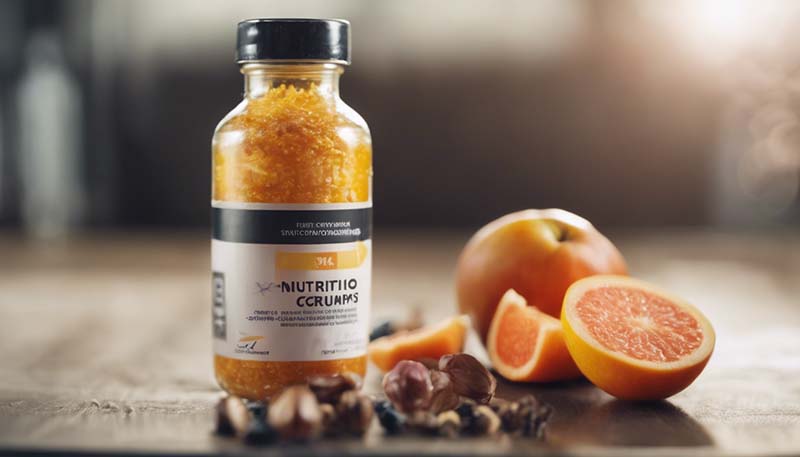The Role of Nutrition in Reducing Muscle Cramps
2024-06-18
The Role of Nutrition in Reducing Muscle Cramps
Muscle cramps are involuntary and sudden muscle contractions that can cause severe pain and discomfort. They can occur in any muscle but are most commonly experienced in the legs, particularly the calves. While the exact cause of muscle cramps is not fully understood, it is widely believed that a combination of factors, including dehydration, overuse, and nutritional imbalances, can contribute to their onset. In this article, we will explore the role of nutrition in reducing muscle cramps and discuss various dietary strategies that can help prevent and alleviate this common issue.
Understanding Muscle Cramps
Muscle cramps are characterized by a sudden, involuntary contraction of one or more muscles, often lasting for several seconds to a few minutes. They can be caused by various factors, including:
- Dehydration
- Electrolyte imbalances
- Fatigue and overuse
- Nerve compression or injury
- Certain medications
- Underlying medical conditions
The Importance of Nutrition
Proper nutrition is essential for maintaining overall health and well-being, and it can play a significant role in reducing the frequency and severity of muscle cramps. Here are some key nutrients and dietary factors that can help prevent muscle cramps:
Advertisement
1. Hydration
Staying adequately hydrated is crucial for preventing muscle cramps, as dehydration can lead to an imbalance in electrolytes, which are essential for proper muscle function. Aim to drink at least 8-10 glasses of water per day, and increase your intake during physical activity or in hot weather.
2. Electrolytes
Electrolytes, such as sodium, potassium, calcium, and magnesium, are minerals that help regulate muscle contractions and nerve function. An imbalance in these minerals can contribute to muscle cramps. To ensure you're getting enough electrolytes, include the following foods in your diet:
- Potassium: bananas, oranges, potatoes, spinach, and avocados
- Sodium: table salt, soy sauce, and certain processed foods
- Calcium: dairy products, leafy green vegetables, and fortified plant-based milk
- Magnesium: nuts, seeds, whole grains, and dark chocolate
3. Protein
Protein is essential for muscle repair and growth, and a deficiency can lead to muscle weakness and cramps. Aim to include a variety of protein sources in your diet, such as lean meats, fish, beans, legumes, and low-fat dairy products.
4. Vitamins and Minerals
Certain vitamins and minerals play a role in muscle function and can help reduce the risk of cramps. Some important ones to include in your diet are:
- Vitamin D: helps with calcium absorption and can be found in fatty fish, egg yolks, and fortified dairy products
- Vitamin E: acts as an antioxidant and can help reduce muscle damage; found in nuts, seeds, and green leafy vegetables
- Vitamin B12: important for nerve function and red blood cell formation; found in animal products and fortified plant-based foods
5. Balanced Diet
In addition to focusing on specific nutrients, it's important to maintain a balanced diet that includes a variety of fruits, vegetables, whole grains, and healthy fats. This will ensure that you're getting all the necessary nutrients for optimal muscle health and function.
Dietary Strategies to Reduce Muscle Cramps
Here are some dietary strategies that can help reduce the frequency and severity of muscle cramps:
1. Eat Regular, Balanced Meals
Eating regular, balanced meals can help maintain stable blood sugar levels and provide your body with a steady supply of nutrients, which can help prevent muscle cramps.
2. Avoid Dehydration
Drink plenty of water throughout the day and during physical activity to prevent dehydration, which can contribute to muscle cramps.

3. Limit Alcohol and Caffeine
Alcohol and caffeine can have a diuretic effect, which can lead to dehydration and electrolyte imbalances. Limit your intake of these beverages, especially during periods of intense physical activity or in hot weather.
4. Choose Whole Foods
Choose whole, unprocessed foods whenever possible, as they are more nutrient-dense and less likely to cause imbalances that can lead to muscle cramps.
5. Consider Supplements
If you're struggling to get enough nutrients from your diet, consider taking supplements, such as magnesium or potassium, to help prevent muscle cramps. However, it's always best to consult with a healthcare professional before starting any new supplement regimen.
Conclusion
Muscle cramps can be a painful and inconvenient issue, but by focusing on proper nutrition and hydration, you can significantly reduce their frequency and severity. Incorporate a balanced diet rich in electrolytes, protein, vitamins, and minerals, and practice good hydration habits to support your muscles and overall health.
Remember that while nutrition plays a crucial role in preventing muscle cramps, it's also important to address other potential causes, such as overuse, fatigue, and underlying medical conditions. If you're experiencing frequent or severe muscle cramps, it's a good idea to consult with a healthcare professional to rule out any underlying issues and develop a comprehensive treatment plan.
Comments